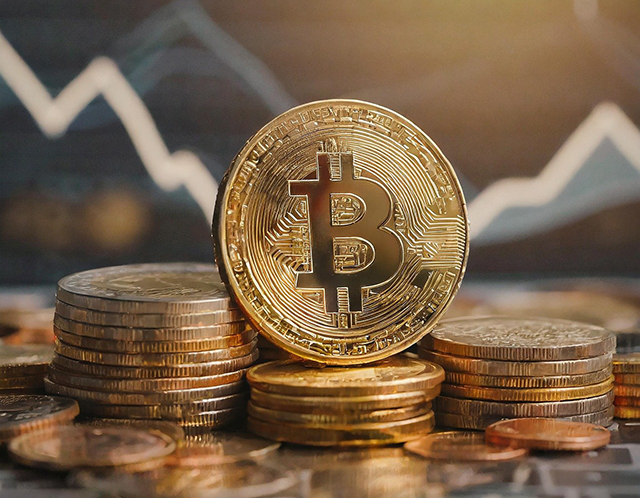Content Presented by Bazoom Group
Mississippi’s Crypto Rules: A Closer Look at the Blockchain Basics Act
Published 2:14 pm Wednesday, August 14, 2024
A set of rules called the Blockchain Basics Act has been proposed for three additional U.S. states—Ohio, South Carolina, and Mississippi. These rules want to keep people safe when dealing with cryptocurrency in their state. It has the potential to create a more favorable environment for crypto companies like Coinbase for example. Coinbase is the biggest marketplace for new crypto coins in the United States. When new token coins are added, they commonly see substantial growth in value. So with the new act, crypto companies like Coinbase have to keep an eye on the rules specific to each state and adjust how they work accordingly.
Representative Steve Demetriou introduced the Blockchain Basics Act in Ohio. He also suggested a rule against central bank digital currency (CBDC) from being recognized as money in Ohio in 2023. CBDC is a digital form of money issued by a country’s central bank. This means he’s working on making rules for both the simple blockchain tech and the new digital money types. In South Carolina Senator Danny Verdin and in Mississippi Representative Jody Steverson introduced the Blockchain Basics Act.
The new rules in Mississippi aim to keep people safe when they use cryptocurrency and blockchain technology in their state. The set of rules covers various areas, including:
Safe Custody and Security: Individuals can safely hold and trade their Bitcoin and other crypto assets in Mississippi. With self-custody, you become the owner of your digital purse. Instead of relying on a bank or third party, you directly manage your Bitcoin and other cryptocurrencies.
No one else can access your coins without your consent, making sure your money is safe. For example, Sports Talk Philly Reviewed the top online casinos, many of which accept cryptocurrencies, allowing crypto holders to play games like poker, slots, or blackjack, or play to earn crypto games anonymously without worrying that their personal information could be exposed or compromised.
Mining Cryptocurrency: It ensures that people can mine cryptocurrency without specific licenses. Mining cryptocurrency is like searching for treasure using super-strong computers. When you mine cryptocurrency, you solve puzzles to make new digital coins, like Bitcoin. Now, people in Mississippi can do this without special government licenses. They can use their computers to make digital money freely.
Noise Pollution Limits: When you use powerful mining computers, they make noise, like a buzzing sound. So, even though you can mine freely, there are rules about how loud your mining setup can be. These rules help make sure your neighborhood stays quiet and peaceful and help to respect other people’s rights.
Trading Freedom: When you want to buy or sell Bitcoin in Mississippi, you don’t need anyone’s approval. You can trade your coins whenever you want.
Node Autonomy: In a blockchain network, each computer (node) follows rules agreed upon by the group. These nodes work together like a team and follow the same rules. Node autonomy means no person or group can control the whole network, and it empowers everyone involved so nobody has too much control.
Tax Exemption: When you sell your crypto coins and make money, which is called a capital gain, normally you pay some tax on it. But in Mississippi, you don’t have to pay state taxes if you cash out less than $200 worth of crypto.
Dennis Porter, CEO and co-founder of the Satoshi Action Fund, a group that teaches lawmakers about why it’s important to make rules that are good for cryptocurrencies, thinks the new rules are important for people who use Bitcoin in the country. He said it is a chance to stand up against powerful people who want to limit how we can use Bitcoin, like Sen. Elizabeth Warren.
Porter states that passing these laws isn’t just about protecting your basic rights, it is also about changing how people talk about Bitcoin and digital money all over the USA. Thanks to this effort, Porter and his group, the Satoshi Action Fund, have brought in similar rules in seven states (Virginia, Indiana, Nebraska, Tennessee, Ohio, South Carolina, and Mississippi), and they have already passed one in Missouri. Before this, Porter said they were planning to introduce these rules in 14 states in 2024.


